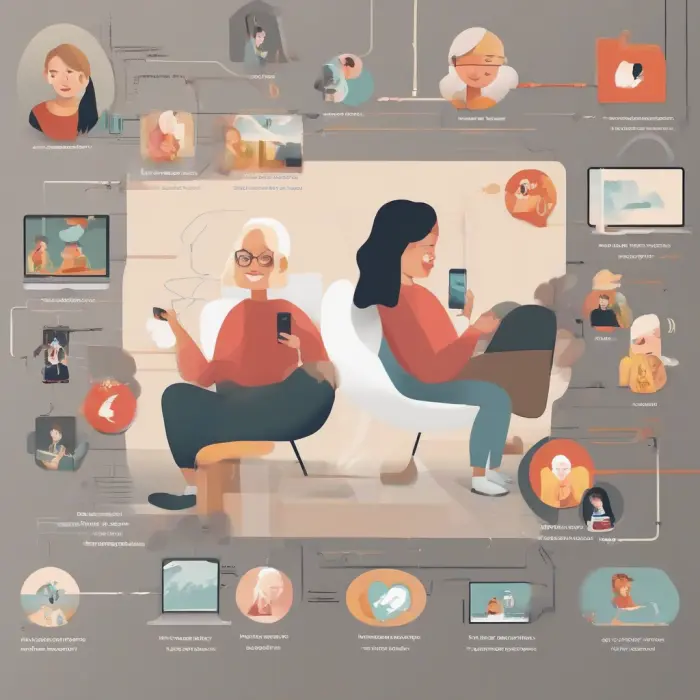Exploring the Influence of Social Media on Mental Health
The broad range of social media platforms available today offer myriad benefits, including communication with friends and family, community engagement, and media-sharing. However, the extensive use of social media has given rise to a number of concerns, particularly regarding mental health. Recent researches have been investigating the impact of social media usage on the mental well-being of individuals.
The Dark Side of Social Media
According to several studies, high levels of social media engagement can be linked to indicators of poor mental health, including anxiety, depression and loneliness. The 'compare and despair' attitude often experienced when using these platforms can lower individuals' self-esteem and happiness. Platforms like Instagram, Snapchat, and Facebook inadvertently promote a culture of unhealthy comparison and competition which can exacerbate feelings of inadequacy and guilt.
Exploring the Research
A study published in the Journal of Social and Clinical Psychology found a significant correlation between time spent on social media and an increased risk of mental health problems. They demonstrated that individuals who limited their social media usage showed a significant decrease in loneliness and depression compared to those who did not.
Social Media and Body Image
Another area where social media has a detrimental impact on mental health is body image. Individuals, especially adolescents, often compare their bodies to the idealized and often unattainable images they see on social media. This can lead to feelings of insecurity, dissatisfaction and distress, which in turn can lead to disordered eating behaviors and body dysmorphic disorders.
The Positive Side of Social Media Interaction
Conversely, social media also provides platforms for people to express their feelings and seek help, offering a sense of community and support. It can be particularly helpful for those who may feel isolated or stigmatized in their offline lives. Many mental health awareness campaigns have found a home on social media, creating much-needed conversations and breaking down stigmas.
The Role of Moderation
Moderation is essential when using social media. Limiting screen time and setting healthy boundaries can help create a balance between the online world and the real world. Furthermore, taking periodic breaks from social media and engaging in other activities including exercise, meditation, and social interaction can help foster positive mental health.
Final Thoughts
While the benefits and drawbacks of social media on mental health continue to be explored, one thing is certain: social media is not going away. Therefore, it is critical that individuals understand the impact these platforms can have on their mental health, and implement strategies to mitigate potential negative effects.










